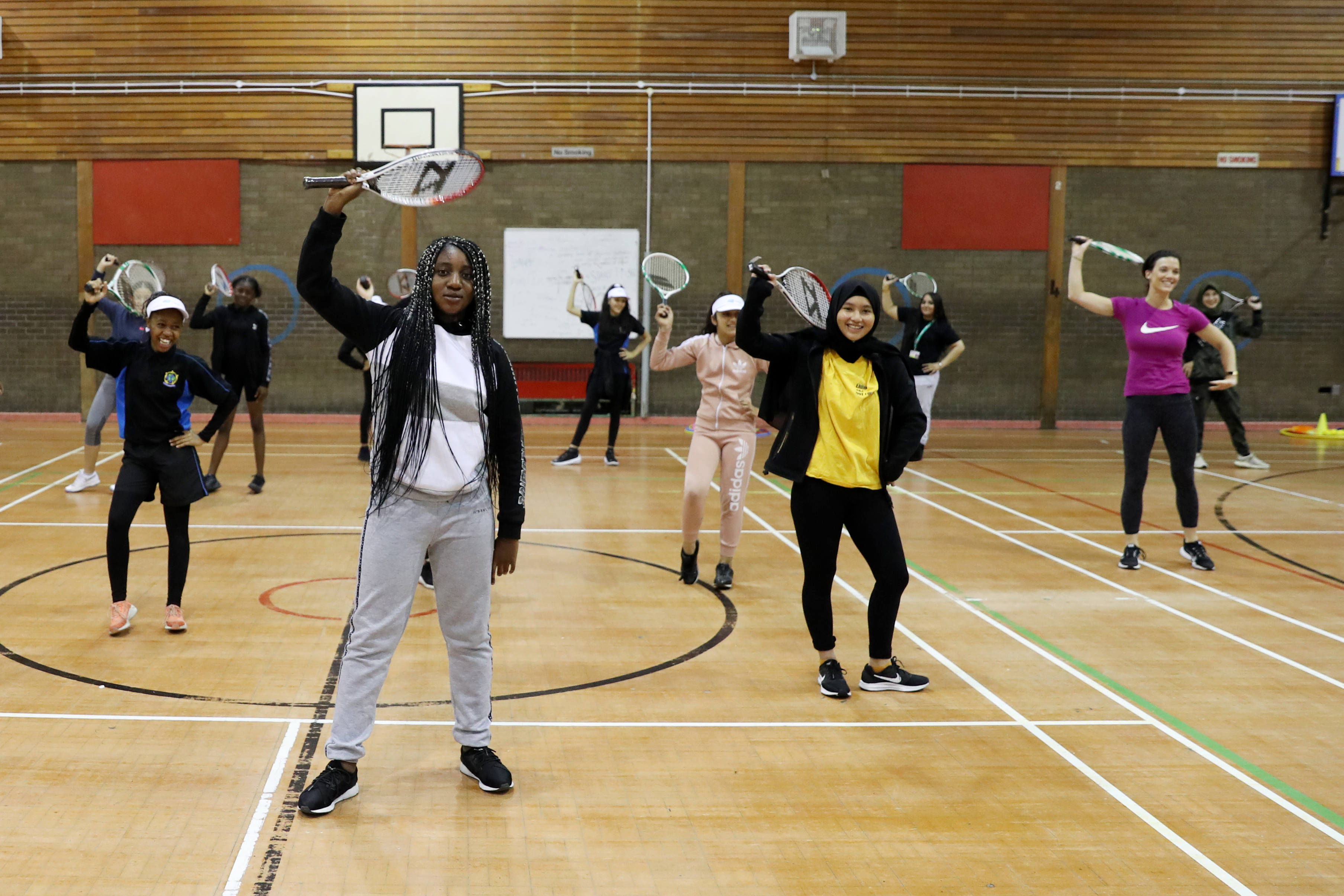A partnership between two Lawn Tennis Association programmes is aiming to bring tennis to women and girls from disadvantaged and BAME communities across the UK.
After pilot workshops in London, Birmingham and Manchester last year involving 30 community organisations, an expanded programme for 2020 will be announced shortly.
It was at a workshop for She Rallies, the initiative devised by Judy Murray and the LTA to grow the female tennis workforce, that Jo-Anne Downing, the governing body's product and programme manager, realised there was an issue.

She told the PA news agency: "We were painfully aware that we weren't working with a diverse group of women.
"Judy was really keen to open the programme up and try to diversify our female coaches, ambassadors and activators.
"That's when I started talking to her about our SERVES programme, which isn't specifically aimed at females but does aim to work in BAME communities, and it was off the back of that that the partnership between these two programmes came together."
SERVES takes tennis into disadvantaged areas by training 'activators' from those communities to deliver coaching sessions in venues ranging from youth clubs to mosques and temples.
Nalette Tucker, a sports coach who set up the Sunnah Sports Academy Trust in Bradford in 2014, jumped at the chance to become involved.
She said: "Since day one, the LTA have been amazing. Their communication with us, their help with equipment and upskilling our staff has been phenomenal.
"We began by delivering sessions for as low as a pound a session and we've just progressed through. We've worked in a lot of independent, faith-based schools, churches, mosques, and really just tried to take tennis to as many different places as we can."
Tucker admits preconceptions about the sport meant tennis was not considered an option for people in her community.
"It was something that I think was known to be in only certain areas," she said. "It wasn't for our kids, that's what we'd hear a lot. Now the first thing people ask us is, 'Do you have any tennis sessions?' It's changed the perception.
"We've got a tournament coming up in a couple of weeks and the kids are looking forward to competing and hopefully that will lead them into the next generation of kids that will then go on (in the sport) that would never, ever have felt that was possible for them."
Nalette Tucker says @JudyMurray is the coach who she looks up to the most.
We think there will be plenty of people looking up to Nalette after reading her story and her experiences of coaching.
Read it at https://t.co/MdyL5wPL3h #PassOnYourPassion pic.twitter.com/3Ii1ZGjdiP
— Yorkshire Sport Fndn (@YorkshireSport) September 19, 2019
Meeting Murray, who has worked tirelessly to try to broaden access to tennis, was another big moment for Tucker.
"She focused on specifically engaging girls in tennis and a lot of what we'd struggled with was finding that, because primary schools weren't introducing tennis, secondary schools weren't doing it, they weren't having access elsewhere, it was taking a long time for the kids to pick up the skills," said Tucker.
"She really looked at taking it back to the basics and it worked fantastically. Since we did that workshop we've engaged so many more children because they've enjoyed it and they've seen they can actually progress in it.
"Obviously the chance to meet Judy Murray was amazing. She's a coach I've looked up to for years."
Great to join Judy Murray, in the constituency to deliver a tennis session supporting and developing 20 existing female #SERVES activators through #SheRallies training, equipping them to run female only sessions within their community. @the_LTA pic.twitter.com/ik8tvTO98m
— Preet Kaur Gill MP (@PreetKGillMP) June 22, 2019
The image of tennis as an expensive, white, middle-class pursuit persists and, with falling participation an issue across a wide range of traditional sports, the LTA knows it must cast its net wider.
Other initiatives to reach more girls and women are in the pipeline, and Downing said: "Our whole five-year plan and vision is around opening tennis up.
"There's fewer women and girls playing tennis than there were 10 years ago so we've got a bit of a leaky bucket.
"Rather than expecting people to turn up at tennis courts, we're adapting the game and putting it in non-traditional spaces. Judy talks a lot that you have to see it to be it.
"When you're looking at those disadvantaged communities and BAME communities, there's not necessarily an obvious role model, so, if we can do more work at a community level and have more women on the ground that can be there to inspire other women and girls, I think that will be a real positive."
/https%3A%2F%2Fsportsmole-media-prod.s3.gra.io.cloud.ovh.net%2F20%2F04%2Fheather-watson_1.jpg)
/https%3A%2F%2Fsportsmole-media-prod.s3.gra.io.cloud.ovh.net%2Fuploads%2F2025%2F11%2Fjannik-sinner-reacts-at-the-atp-finals-on-november-10-2025-marco-canoniero-69127a5832e3b742041832.jpg)
/https%3A%2F%2Fsportsmole-media-prod.s3.gra.io.cloud.ovh.net%2Fuploads%2F2025%2F11%2Fcarlos-alcaraz-reacts-at-the-atp-finals-on-november-11-2025-marco-canoniero-6913c6df0284b816368765.jpg)
/https%3A%2F%2Fsportsmole-media-prod.s3.gra.io.cloud.ovh.net%2Fuploads%2F2025%2F11%2Falex-de-minaur-celebrates-his-win-at-the-atp-finals-on-november-13-2025-marco-canoniero-69173c4065d4e844185148.jpg)